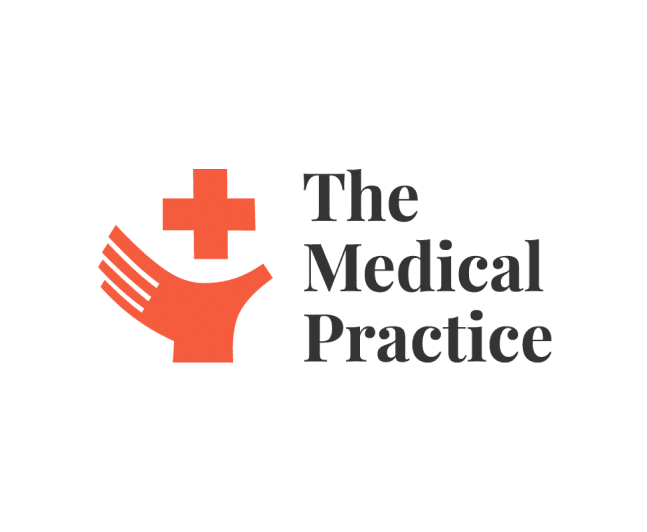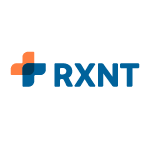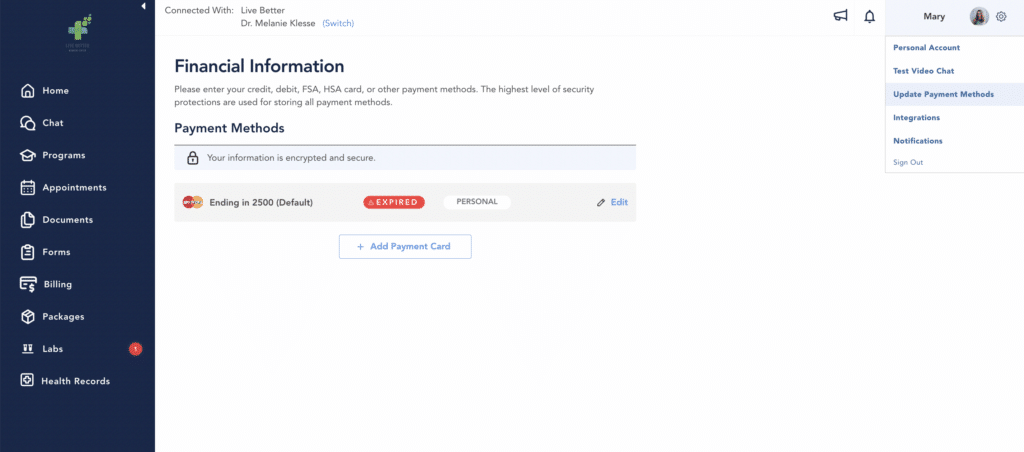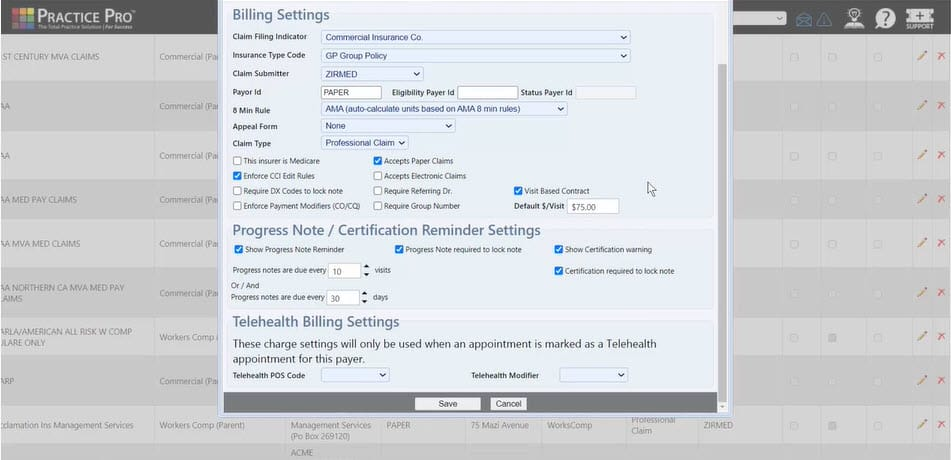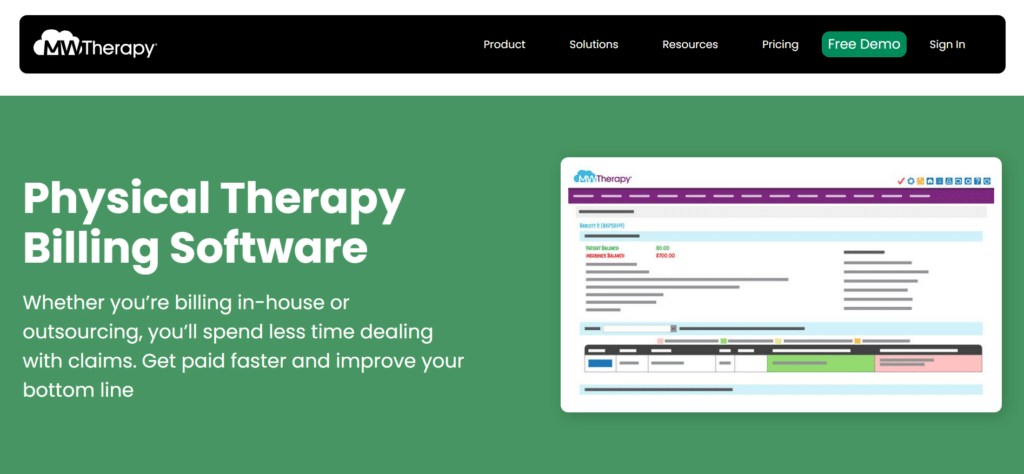10 Best Physical Therapy Billing Software Shortlist
Here's my pick of the 10 best software from the 31 tools reviewed.
Our one-on-one guidance will help you find the perfect fit.
As a seasoned professional in the medical practice management field, I know how critical a seamless billing system is for your physical therapy practice. These handpicked physical therapy billing software solutions, each unique in their offerings, are designed to take your practice to the next level. Each software provides an essential platform for managing patient billings, ensuring your focus remains on providing top-notch care.
When incorporated into your practice, these tools bring significant benefits, such as reduced administrative tasks, more efficient claims processing, and improved cash flow. They target common pain points - inefficiencies in the billing process, difficulties tracking claims, time-consuming data entry, and lack of synchronization between clinical and administrative tasks.
Take a moment to explore these software options, selected with your needs in mind, to find the one that will make your practice more efficient and your workdays more rewarding. Trust me; you'll thank yourself later.
What Is Physical Therapy Billing Software?
Physical therapy billing software is a specialized tool designed for physical therapists, occupational therapists, and administrative staff involved in the billing and management of a physical therapy practice. It streamlines and automates the complex medical billing process, including coding and submitting claims, processing payments, and managing patient accounts.
In addition, this software often integrates with electronic health record (EHR) systems and scheduling software, offering a holistic solution for managing various aspects of the practice. Its primary aim is to increase the efficiency and accuracy of the billing process, reduce administrative burden, and ultimately enhance the practice's profitability.
Best Physical Therapy Billing Software Summary
| Tool | Best For | Trial Info | Price | ||
|---|---|---|---|---|---|
| 1 | Best for interoperability and network connectivity | Not available | Pricing upon request | Website | |
| 2 | Best for telehealth functionality | Not available | From $29/user/month, (billed annually). | Website | |
| 3 | Best for comprehensive practice management | Not available | From $99/user/month | Website | |
| 4 | Best for intuitive design and user experience | Not available | From $99/user/month (billed annually) | Website | |
| 5 | Best for streamlining claim submissions | Not available | Pricing upon request | Website | |
| 6 | Best for data-driven decision making | Not available | From $199/user/month | Website | |
| 7 | Best for seamless EMR and billing integration | Not available | From $129/user/month | Website | |
| 8 | Best for all-in-one practice solution | Not available | From $299/user/month | Website | |
| 9 | Best for claims management and tracking | Not available | From $150/user/month | Website | |
| 10 | Best for electronic documentation needs | Not available | Pricing upon request | Website |
Best Physical Therapy Billing Software Reviews
AthenaHealth provides a wide range of medical practice management solutions with particular strength in interoperability and network connectivity. Its software platform, designed to bring providers and patients into a more accessible and connected healthcare ecosystem, stands out for its commitment to seamless data exchange.
Why I Picked AthenaHealth:
I chose AthenaHealth because of its unique focus on creating a connected healthcare environment. Its distinct ability to facilitate interoperability and provide robust network connectivity makes it stand apart from other platforms. I determined it as the 'best for interoperability and network connectivity' due to its extensive and efficient networking features, providing a truly integrated healthcare experience.
Standout features and integrations:
AthenaHealth offers a comprehensive set of features including electronic health records (EHR), referral management, practice management system, and patient engagement tools. Its integration capabilities are extensive, encompassing many third-party apps and services, including lab systems, hospital systems, and medical billing systems like WebPT.
Pros and cons
Pros:
- Extensive third-party integration capabilities
- Comprehensive set of features including EHR, practice management, and patient engagement tools
- Robust interoperability and network connectivity
Cons:
- Some users may find customer service less responsive than desired
- The platform might be more complex than others
- No free tier available
Healthie is a comprehensive practice management software that caters to healthcare professionals. It combines features such as scheduling, billing, telehealth, and electronic health records into a single platform. Its emphasis on telehealth capabilities makes it an excellent choice for those seeking virtual health services.
Why I Picked Healthie:
I chose Healthie for this list due to its comprehensive approach to wellness and telehealth capabilities that stand out among competitors. As many healthcare providers shift to virtual services, Healthie's robust telehealth features provide seamless video appointments and secure patient communication. I deem it the 'Best for telehealth functionality' because of the efficiency and convenience it brings to remote healthcare.
Standout features and integrations:
Key features of Healthie include secure video appointments, patient progress tracking, electronic health records, online scheduling, and insurance reimbursement. The platform also offers integration with web, iPad, and mobile devices (Android, iOS), as well as popular software applications such as Google Calendar, Zoom, and Stripe, enabling a more coordinated approach to practice management.
Pros and cons
Pros:
- Seamless integrations with other software
- User-friendly interface
- Comprehensive telehealth features
Cons:
- May have more features than a small practice requires
- Lack of a free tier
- Requires an annual commitment for the lowest price
Practice Pro is a versatile physical therapy billing software solution that offers a comprehensive suite of tools to manage all aspects of your practice, from scheduling to documentation and billing. Its holistic approach makes it the ideal choice for those seeking a one-stop solution for their physical therapy EMR and practice management needs.
Why I Picked Practice Pro:
In comparing various options, I found Practice Pro's comprehensive feature set particularly compelling. This software sets itself apart by offering all the necessary tools for effective practice management under one umbrella, from patient intake to claim submission. As such, I've determined that it's best for those in need of an all-inclusive solution for practice management.
Standout features and integrations:
Practice Pro's all-encompassing feature set includes scheduling, documentation, billing, and reporting tools, making it a comprehensive solution for your practice. Of note, its billing tool supports electronic claim submission and tracking for a smooth and efficient billing process. As for integrations, Practice Pro is compatible with several popular EHR systems, enhancing its functionality and simplifying data sharing.
Pros and cons
Pros:
- Supports electronic claim submission and tracking
- Compatibility with several popular EHR systems
- Comprehensive toolset for practice management
Cons:
- Might be too complex for smaller practices or sole practitioners
- Higher starting price compared to some other options
- No free version, only a free demo
Prompt EMR is a cloud-based software solution developed specifically for PT practices. It presents a unique user interface that merges simplicity with functionality, making it both easy to use and highly effective.
Why I Picked Prompt EMR:
I chose Prompt EMR for this list because it merges a great user interface with an impressive feature set. It distinguishes itself with an intuitive design that enhances user experience, reducing the learning curve often associated with complex software. In my view, it is the best for intuitive design and user experience.
Standout features and integrations:
Prompt EMR's standout features include patient scheduling, billing, documentation, and reporting; all managed through their user-friendly interface. Furthermore, it integrates well with popular billing and accounting platforms, enhancing operational efficiency and ensuring smooth data flow within your practice.
Pros and cons
Pros:
- Strong integrations with other platforms
- Comprehensive feature set
- Easy-to-use intuitive design
Cons:
- Advanced features may require some time to master
- Might be cost-prohibitive for smaller practices
- Only a time-limited free trial
StrataPT is a fully integrated EMR and medical billing software designed specifically for outpatient physical therapy and occupational therapy practices. Its primary purpose is to help medical practices streamline their claim submission process, reducing administrative burdens and allowing more focus on patient care.
Why I Picked StrataPT:
In the landscape of EMR and billing platforms, I picked StrataPT because of its singular focus on outpatient physical and occupational therapy practices. This specialization makes it different from other more generic solutions, offering tailored features for the sector. I determined it's 'Best for streamlining claim submissions' due to its proprietary technology, which significantly reduces errors and accelerates the billing process.
Standout features and integrations:
StrataPT's main features include accurate claim submission, intuitive scheduling, detailed reporting, and electronic medical record management. In terms of integrations, StrataPT can work with various clearinghouses, ensuring smooth information flow between the practice and payers.
Pros and cons
Pros:
- Full integration between EMR and billing functions
- Streamlined claim submission process
- Tailored to outpatient physical and occupational therapy practices
Cons:
- Lacks wider medical practice capabilities beyond physical and occupational therapy
- Pricing is not transparent
- No free plan available
Billing Dynamics is a robust software solution that offers comprehensive billing services for medical practices. With its strong emphasis on data analytics, it allows practices to make informed decisions based on accurate and timely financial information.
Why I Picked Billing Dynamics:
When choosing software for this list, I considered Billing Dynamics' exceptional capacity for data analysis. This tool goes beyond standard billing functions, offering deep analytics that can transform a practice's financial management. In my opinion, it is 'Best for data-driven decision-making' because it delivers insights that can significantly impact a practice's revenue cycle management (RCM).
Standout features and integrations:
Billing Dynamics has several important features that help it stand out. These include real-time analytics, customizable reporting, and an intuitive dashboard that simplifies revenue tracking. The software also offers seamless integration with various electronic medical record systems and accounting platforms, facilitating smooth data transfer.
Pros and cons
Pros:
- Seamless integrations with various systems
- Customizable reporting features
- Strong data analytics capabilities
MW Therapy provides an integrated billing and EMR software solution specifically designed for physical therapy practices. The software's strength lies in its ability to create a smooth, efficient workflow between clinical documentation and billing processes.
Why I Picked MW Therapy:
In making my selection, I appreciated MW Therapy for its integrated approach to EMR and billing processes. The software efficiently connects these two crucial aspects, which sets it apart from many competitors. That's why I consider it to be the best for seamless integration of EMR and billing.
Standout features and integrations:
MW Therapy boasts an array of features including scheduling, documentation, billing, and reporting. The software's standout feature is the seamless integration of EMR and billing, enabling automatic claim generation based on your SOAP notes. Regarding integrations, MW Therapy can smoothly connect with a range of external platforms, such as accounting software, to simplify your workflow.
Pros and cons
Pros:
- Compatibility with external platforms
- Feature-rich platform for various practice needs
- Smooth integration of EMR and billing
Cons:
- The starting price could be steep for smaller practices
- Might have a learning curve for beginners
- No free version available
Heno is a physical therapy software that integrates electronic medical records (EMR), practice management, and billing functionality into a single comprehensive solution. Its integrated approach simplifies multiple practice operations (PTs, OTs, and SLPs), making it an excellent choice for an all-in-one practice solution.
Why I Picked Heno:
In deciding on Heno for this list, the software's cohesive, integrated platform stood out from other options. Its ability to streamline multiple practice operations into one system makes it a distinct selection. I am of the opinion that Heno is best for an all-in-one practice solution because of its ability to harmonize different functionalities effectively.
Standout features and integrations:
Heno offers a variety of features like online scheduling, treatment plan tracking, appointment reminders, insurance eligibility checks, detailed reporting, and physical therapy clinic. The software also integrates with credit card processors for easy payment processing and third-party calendar systems for better schedule management.
Pros and cons
Pros:
- Provides third-party integrations for enhanced functionality
- Offers a variety of features to streamline practice operations
- Integrated platform for EMR, practice management, and billing
Cons:
- The system might require some training to fully utilize
- The pricing could be high for smaller practices
- Does not offer a free tier or trial
Imagine offers an advanced medical billing solution that significantly simplifies the claims management process. It stands out in the market for its comprehensive tracking functionality, making it the ideal choice for effective claims management and tracking.
Why I Picked Imagine:
I selected Imagine for its superior claim management capabilities. Compared to other platforms, its claim-tracking functionality is extensive and robust. It's this feature that solidifies its place as the best tool for claims management and tracking in my opinion.
Standout features and integrations:
Imagine features a variety of capabilities, such as automated claim scrubbing, denial tracking, and advanced reporting. In terms of integrations, the software connects with several EHR systems, enhancing interoperability and ensuring seamless information flow.
Pros and cons
Pros:
- Automated claim scrubbing feature
- Extensive integrations with EHR systems
- Advanced claims management and tracking capabilities
Cons:
- Some users might find the interface less intuitive than others
- The pricing might be high for smaller practices
- No free tier or trial offered
ChartLogic is a suite of healthcare IT solutions, that combines electronic medical record (EMR), practice management, and medical billing services into one platform. The software excels in meeting electronic documentation needs, helping healthcare providers to digitize, organize, and easily access patient records.
Why I Picked ChartLogic:
I selected ChartLogic for this list primarily due to its robust EMR capabilities, which I found to be particularly well-designed for electronic documentation. The system's intuitive interface and comprehensive feature set differentiate it from many other EMR solutions on the market. Its strength in handling electronic documentation is why I believe it's the 'Best for electronic documentation needs'.
Standout features and integrations:
ChartLogic offers several standout features, including customizable templates for different specialties, dictation functionality for note-taking, and an advanced search function for patient records. As for integrations, ChartLogic has the capacity to connect with various laboratory and imaging systems and supports data exchange with other healthcare providers via the Direct Messaging protocol.
Pros and cons
Pros:
- Supports seamless data exchange with other healthcare providers
- Customizable templates for various specialties
- Comprehensive electronic documentation capabilities
Cons:
- Could have a steep learning curve for less tech-savvy users
- Pricing information is not transparent
- No free tier or trial is offered
Other Physical Therapy Billing Software
Below is a list of additional physical therapy billing software that I shortlisted but did not make it to the top 10. Definitely worth checking them out.
- TheraPlatform
For secure video conferencing needs
- Vagaro
Good for integration with marketing and branding features
- Tebra
For small practices and sole practitioners
- AdvancedMD
Good for a complete EHR and practice management suite
- Insync
Good for customizable therapy workflows
- PracticeSuite
Good for integrated EHR and medical billing for physical therapy
- ClinicSense
Good for automation of administrative tasks
- InTouch EMR
Good for compliance-centric practice management
- Medigraph
Good for integrated electronic billing solutions
- EZClaim
Good for dedicated therapy billing solutions
- Ambiki EMR
Good for flexible scheduling and management
- Fusion
Good for pediatric physical therapy practices
- Clinicient
Good for complete therapy business management
- ClinicSource
Good for therapy-specific templates and customization
- PracticePerfect
Good for multi-disciplinary practices
- SPRY
Good for streamlined physical therapy billing
- PtEverywhere
Good for mobile practice management
- WRSHealth
Good for EHR with physical therapy-specific features
- Apollo
Good for comprehensive practice management
- PatientStudio
Good for efficient patient engagement and communication
- RXTN
Good for adaptable physical therapy and rehab practices
Other Popular Medical Software Lists
Here are some other popular software solutions for a modern medical practice.
Selection Criteria For Physical Therapy Billing Software
Choosing the right physical therapy billing software is no small task. With a vast array of options available, determining the ideal solution for your practice can feel overwhelming. Selecting the right types of medical billing software is essential for a physical therapy practice’s success.
Having spent substantial time testing and researching various tools, I've narrowed down the key criteria that, in my opinion, matter the most when selecting this specific type of software.
Core Functionality
Physical therapy billing software should enable you to:
- Manage and track patient billing
- Submit and process insurance claims
- Handle scheduling and appointment reminders
- Generate reports to track business performance
Key Features
The following features are especially useful in physical therapy billing software:
- Electronic Health Records (EHR) Integration: This enables seamless data transfer between billing and medical records systems.
- Insurance Verification: This verifies insurance coverage and eligibility before appointments.
- Claims Scrubbing: This feature checks insurance claims from Medicare, Medicaid, Blue Cross Blue Shield, Anthem, and others, for errors before submission, reducing rejections and denials.
- Payment Tracking: This monitors outstanding balances and generates reminders for due payments.
- Integration with Medical Billing Codes: The tool should be able to attach billable hours to tasks via the standard coding system.
Usability
In terms of usability, there are several aspects to consider when selecting physical therapy billing software:
- Intuitive Interface: The tool should have an interface that's easy to navigate, making it quicker to find and input billing information. This is particularly critical in busy physical therapy practices.
- Training and Support: Given the complex nature of medical billing, the software provider should offer comprehensive training materials, including video tutorials and manuals. Robust customer support, including live chat or phone support, can be crucial in resolving issues quickly.
- Customization: The software should allow customization of billing codes, forms, and reports to suit the specific needs of a physical therapy practice.
- Cloud-based: A cloud-based software solution allows access to the software from anywhere, which is especially useful for practitioners working from multiple locations or those who need to access patient information while on the move.
I suggest gaining expertise in medical billing and coding through courses tailored for physical therapy billing, ensuring accurate reimbursements.
Most Common Questions Regarding Physical Therapy Billing Software (FAQs)
What are the benefits of using physical therapy billing software?
Physical therapy clinics need to grasp the purpose of medical billing and coding before choosing the right software. Physical therapy billing software offers several benefits:
- Efficiency: The software automates the billing process, reducing the time spent on manual tasks and increasing the accuracy of billing and invoicing.
- Improved Cash Flow: By streamlining the billing process, these tools can help to ensure faster payment, improving cash flow.
- Reduced Errors: Automated claim scrubbing features can identify and fix errors before claims are submitted, reducing denials and rejections.
- Regulatory Compliance: These tools stay updated with the latest billing codes and regulations, ensuring your practice remains compliant.
- Comprehensive Reporting: These tools can generate reports that provide insights into financial performance and patient trends, helping you make informed business decisions.
How much do physical therapy billing software tools cost?
The pricing for physical therapy billing software varies significantly based on the complexity of the tool, the size of the practice, and the specific features included. It’s common for these tools to use a subscription-based pricing model, where you pay a monthly or annual fee.
What are the typical pricing models for physical therapy billing software?
Most physical therapy billing software providers use a subscription-based pricing model, often priced per user or per practitioner. Some may also offer tiered pricing, where the cost increases with the number of features or the level of service provided.
What is the typical range of pricing for physical therapy billing software?
Prices for physical therapy billing software typically start around $50 per user per month for basic plans and can go up to several hundred dollars per month for more comprehensive plans designed for larger practices.
What is the cheapest and most expensive physical therapy billing software?
As of the time of my research, Kareo is one of the more affordable options, with plans starting at around $50 per user per month. On the higher end, AdvancedMD is among the most expensive options, with plans starting at several hundred dollars per month.
Are there any free physical therapy billing software options?
While most physical therapy billing software options come at a cost, there are some providers who offer a limited free version or free trial of their software. However, these free options often have limited features and may not offer the comprehensive services that a paid version would. It’s always best to thoroughly research and potentially test a product before committing to it.
What are medical billing services?
Medical billing services are professional solutions that manage the submission of medical claims to insurance companies and other payers. These services ensure that claims are accurately coded and submitted, while also tracking payments and addressing denied claims.
The goal is to optimize the revenue cycle for healthcare providers by reducing delays, errors, and rejections. Outsourcing these services allows medical practices to concentrate on patient care while ensuring consistent cash flow and compliance with regulatory standards.
What is medical billing and coding?
Medical billing and coding involves using special codes to document medical procedures and diagnoses. Medical coders translate the care a patient receives into codes. Medical billers take these codes and submit them to insurance companies or other payers to get money for the services provided.
What are medical billing and coding deadlines by state?
Deadlines for submitting medical billing claims differ by state, usually falling between 30 and 90 days. It’s essential for providers to follow state guidelines and payer contracts to ensure prompt payments.
How much to charge as a medical billing specialist?
Medical billing specialists can expect to charge between $18 and $35 per hour, depending on factors such as location, skills, and years of experience. Setting a competitive rate is crucial to staying competitive. For a detailed breakdown, read more about medical billing specialist salary.
Other Medical Billing Tools
Here are some other billing tools, systems, and services that might interest you.
Summary
Choosing the right physical therapy billing software can be a crucial decision that affects the efficiency and financial health of your practice. It can streamline your operations, reduce billing errors, ensure regulatory compliance, and provide valuable insights into your practice's performance.
A healthcare billing professional specializing in physical therapy can ensure smooth software integration for accurate billing.
To stay updated on the latest trends, best practices, and solutions related to your medical practice, subscribe to The Medical Practice newsletter.


